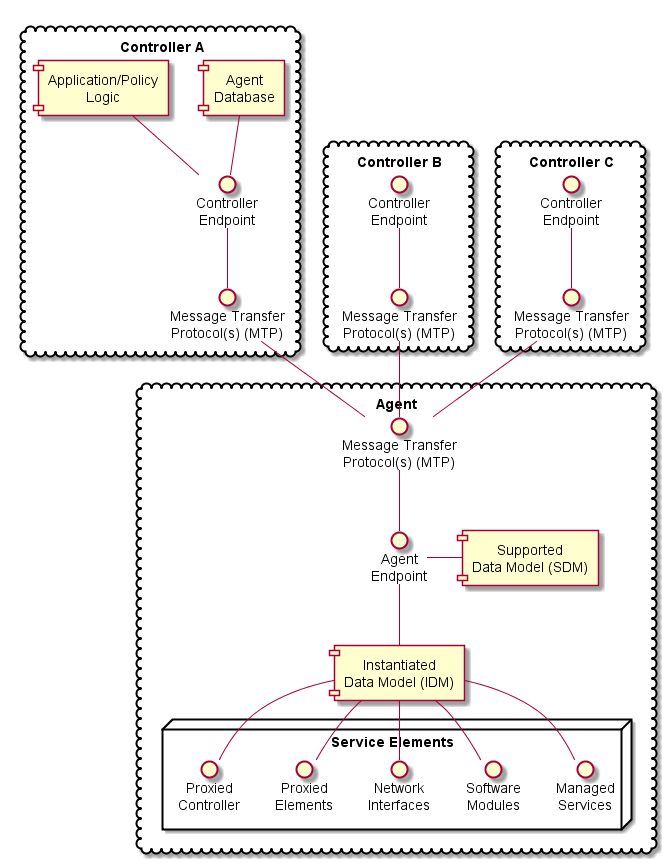Videos
USP Endpoints
There are two kinds of endpoints in USP: Agents, and Controllers. A USP Agent is an Endpoint that exposes functions represented by a set of service elements. It is mostly designed to receive and respond to messages from a USP Controller, or send Notifications about activity that the Controller has subscribed to. A USP Controller allows users and applications to manipulate the functions exposed by an Agent.

USP Agent and Controller Architecture (from TR-369).
The USP Endpoint ID
In a USP system, endpoints identify themselves using an Endpoint ID. This is a value that can be either globally or locally unique, and is generated using a special scheme defined in TR-369. This ID is composed of three parts:
authority-scheme ":" [authority-id] ":" instance-id
- An authority-scheme, which gives a clue as to how the rest of the ID’s uniqueness was determined. For example, if the authority scheme is “oui”, then the authority-id will be formatted as an organizationally unique identifier as defined by the IEEE.
- An authority-id, whose value is determined by the authority scheme. Some authority schemes do not require an authority ID, so it is “optionally mandatory”.
- An instance-id, which may have some restrictions based on the authority scheme, plus some additional restrictions defined in TR-369. For example, the instance ID cannot be longer than 50 characters in length.
The Endpoint ID is used in the to_id and from_id fields of a USP record. Endpoints must ignore messages that do not contain their own Endpoint Identifier in the to_id. While it is possible for a given Controller and Agent to have the same ID, these types of endpoints would never communicate with each other.
When used in the to_id or from_id, the Endpoint ID is used literally. However, the Endpoint ID can also be used in an endpoint’s certificate when providing authentication. In this case, the Endpoint ID is expressed as a Uniform Resource Name unique to the Broadband Forum, as follows:
"urn:bbf:usp:id:" authority-scheme ":" [authority-id] ":" instance-idv
Broadband Forum USP Agent Certification
Get your USP Agent certified now with the official Broadband Forum test platform.